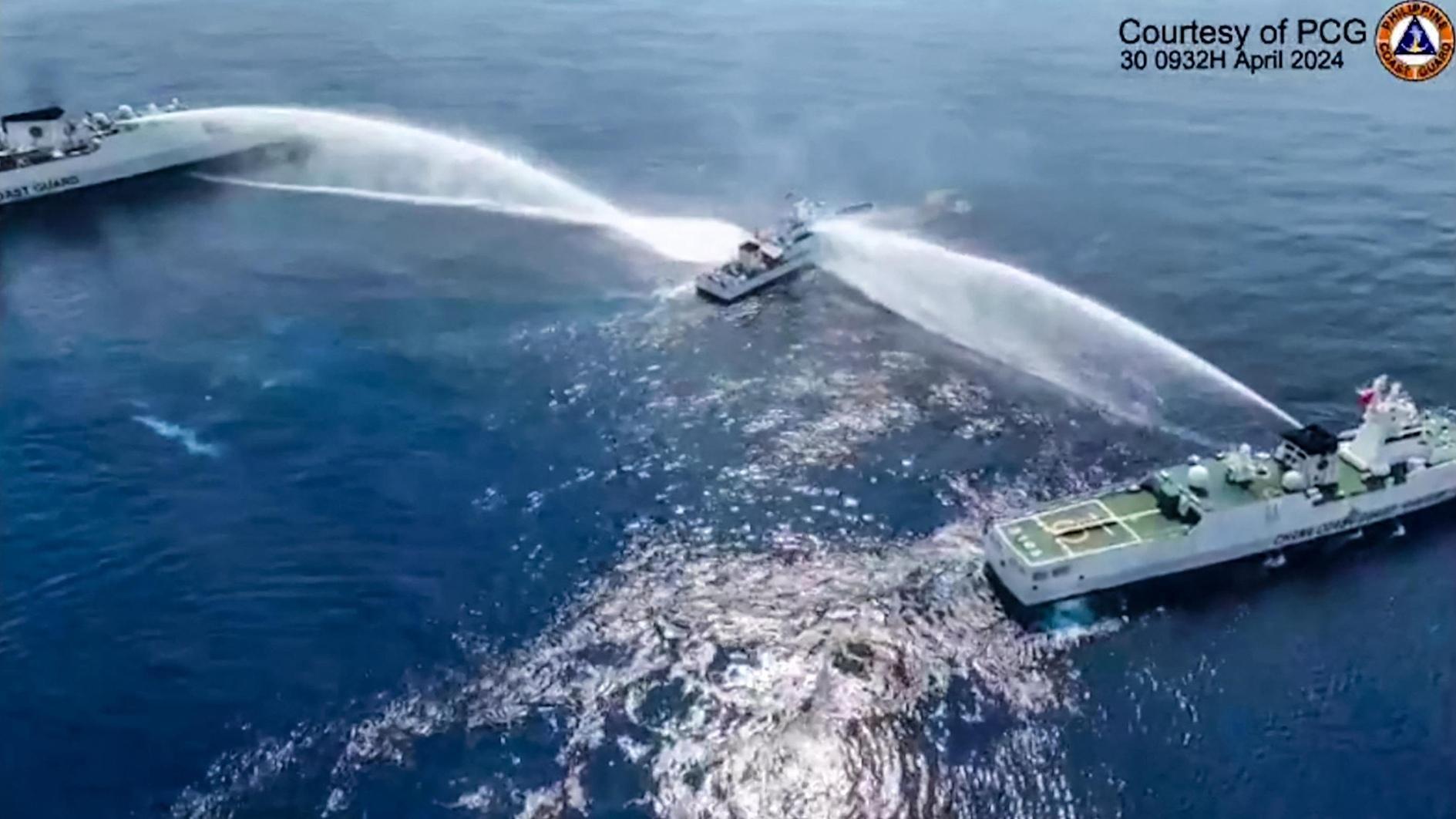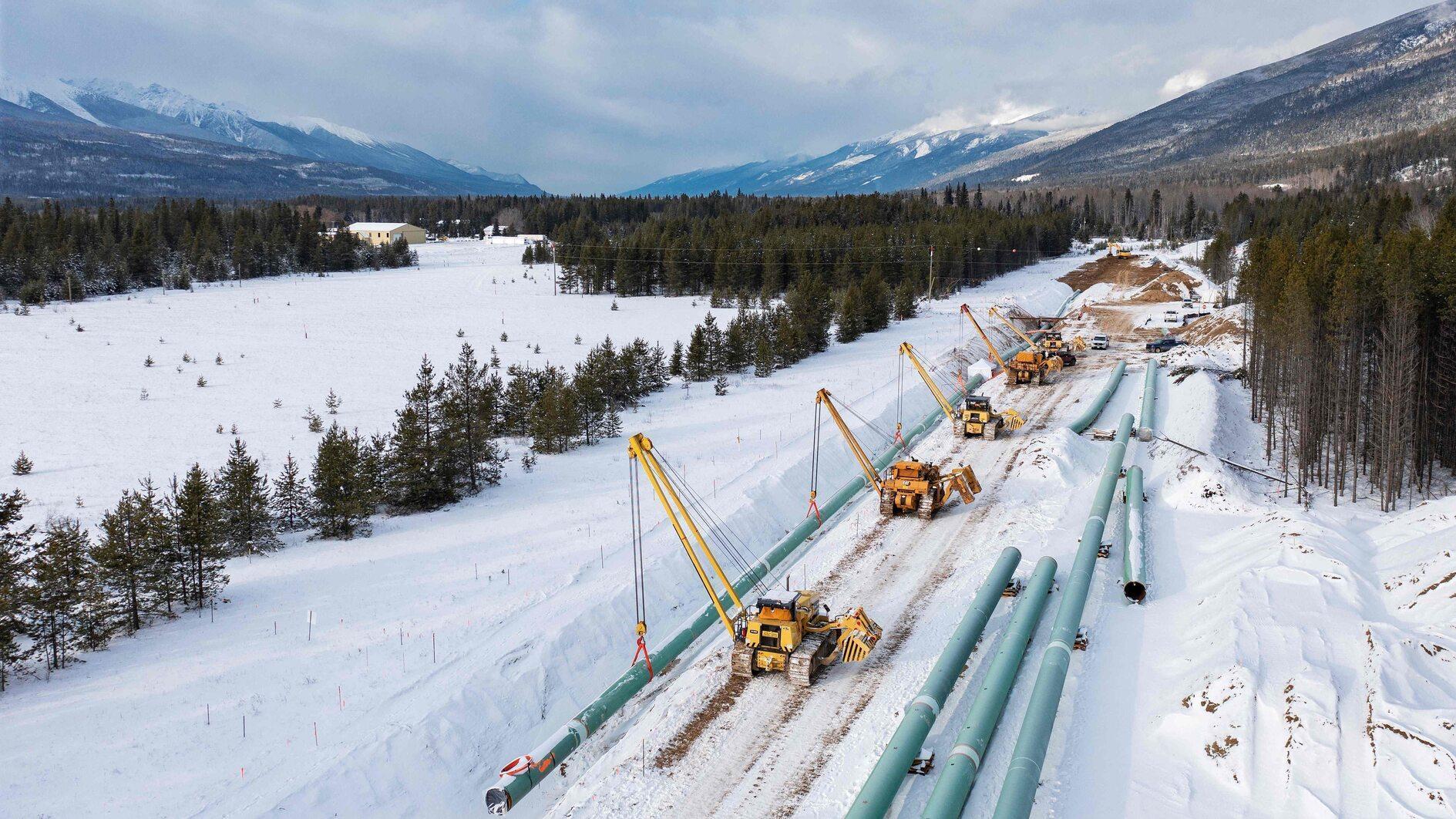ExxonMobil expands Arctic presence in Rosneft deal
MOSCOW - Agence France-Presse

Rosneft Chief Executive Igor Sechin (R), President of ExxonMobil Exploration Company Stephen Greenlee (L) and Russian President Vladimir Putin attend a signing ceremony at the Novo-Ogaryovo state residence outside Moscow, February 13, 2013. Russia's top oil producer Rosneft will move its new licences into its tie-up with North American major ExxonMobil to tap into the country's vast Arctic resources, a source close to the Russian company said. REUTERS photo
Rosneft signed Wednesday an agreement with ExxonMobil giving the US super-major access to seven Arctic fields in exchange for the Russian firm's possible participation in a lucrative Alaskan gas project.The deal -- signed by Rosneft chief executive Igor Sechin and ExxonMobil Exploration head Stephen Greenlee in the presence of President Vladimir Putin -- extends a strategic alliance the two companies forged in 2011 focusing on Russia's Arctic field development.
"The agreements signed today bring the already unprecedented scale of the Rosneft and ExxonMobil partnership up to a completely new level," Sechin said.
The two companies said in a statement that ExxonMobil would receive rights to seven of the 12 Arctic fields Rosneft secured from the Russian government earlier this month.
Those terms more than triple the size of ExxonMobil's Arctic involvement to 10 license blocks and push the US firm still further ahead in the global race for the energy wealth believed to be buried in Arctic soils.
ExxonMobil struck its deal during an international scramble that followed the unexpected collapse of a similar agreement Rosneft had initially been expected to sign with the US firm's British rival BP.
Rosneft has since signed identically-structured exploration deals with ENI of Italy and Norway's Statoil.
The international companies receive minority stakes in the Russian-run projects and are responsible for covering the initial exploration and development costs.
But Wednesday's agreement confirms ExxonMobil's status as Russia's most important energy partner by far.
'Strong partnership'
The US giant said that Rosneft in return had the option of acquiring a 25-percent stake in its Point Thomson project -- fields that ExxonMobil owned for decades but could only start developing recently following necessary approval from the government.
The Russian company said it believed Point Thomson held a quarter of the natural gas reserves in Alaska's energy-rich North Slope.
Rosneft has long held ambitions of expanding its international presence and will have the right to exercise its Alaskan field rights until September 2014.
Sechin said Point Thomson would "increase Rosneft's access to the latest gas and condensate field development technologies used in harsh climatic conditions." The two partners also said they would consider building a liquified natural gas plant in a Russian Far East location facing the Sakhalin Island gas fields in which the US firm also has a stake.
"This expansion is an illustration of the strength of the partnership that exists between ExxonMobil and Rosneft," said Greenlee.
The liquified natural gas portion of the deal underscores ExxonMobil's ability to help Russia move away from the pipeline gas deliveries that have been responsible for an overwhelming majority of its sales in past decades.
Russia's pipeline shipments to its traditional market in Europe are shrinking and Putin on Wednesday held his government to account for failing to correct past policy mistakes quickly enough.
"We have to think about gradually liberalising our liquified natural gas exports," Putin told his government.
He added that Russia had lost "billions of rubles" (tens of millions of dollars) from a drop in gas exports last year.
The fields in the Arctic will take years to explore and develop -- projects that have never been tried in such inclement weather before.
But some Moscow officials are already talking about moving future liquified natural gas shipments from the Arctic along the so-called Northern Sea route to markets in Asia and possibly beyond.
















